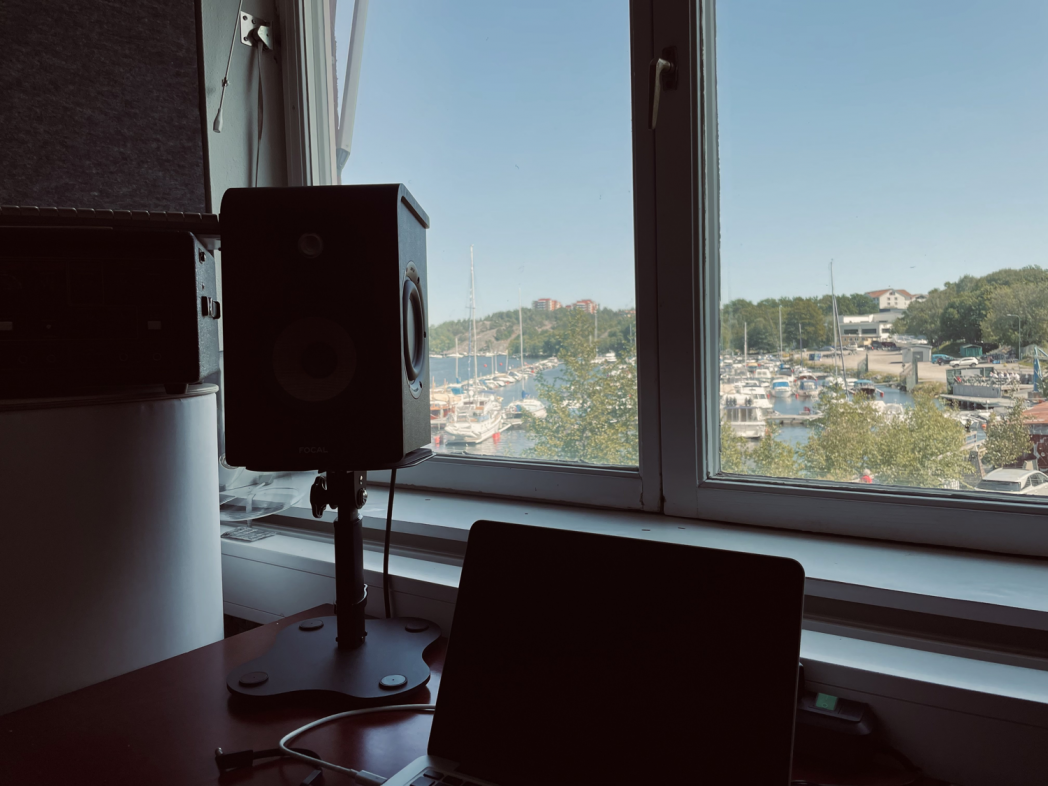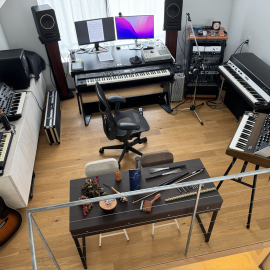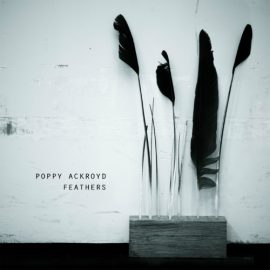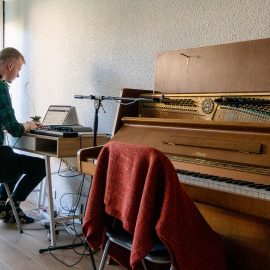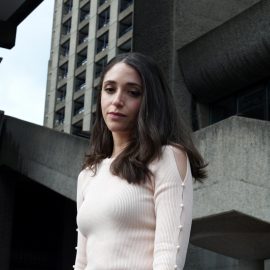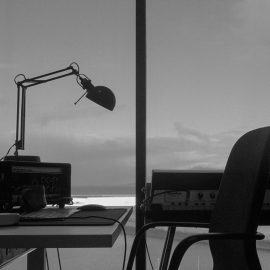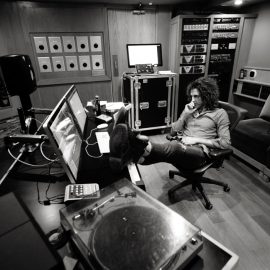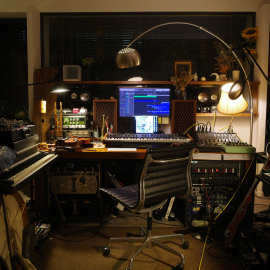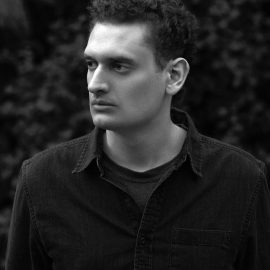Let’s start at the very beginning. Can you tell us how you got involved in composing, and what was your very first piece of gear?
I have a big family here in Stockholm, and we were always spending our weekends at my aunts’ or uncles’ places. They all had either a piano or a keyboard, and I spent a lot of time with these instruments. My aunt noticed I was into playing music, so when I turned 9 or 10, I got a Yamaha keyboard with a built-in drum machine from her. I started taking piano lessons after that. Playing instruments just became a way of spending time when not in school or hanging out with friends. From there, I established a big interest in looking for music at record stores and online and playing in bands with friends. I took a long break from playing music when I graduated high school and started studying visual art, but music found itself back into my life, and that’s when I started working with it professionally. At first, it was part-time work as a freelance musician for other artists and bands, and shortly after, I started doing commission work for performing arts and film. It took some time for me to write music for myself and make my own records. But that time was well needed.
How many different studio iterations have you gone through, and what does your final setup look like right now?
I don’t really know if there is a final one. It’s an endless process. I recently moved into a new studio and realised that I actually like my space pretty airy and empty, after years of sharing studios collectively with other artists and having a lot of heavy gear around. We shared several rooms and had a booking system, which was a great thing and a very meaningful chapter for me. But it came to a point where we all needed our own studios full-time, so this is actually my first own studio in 7 years. Before that I rented a studio flat where I had a piano, a tape machine and a couple of monitors – that was it.
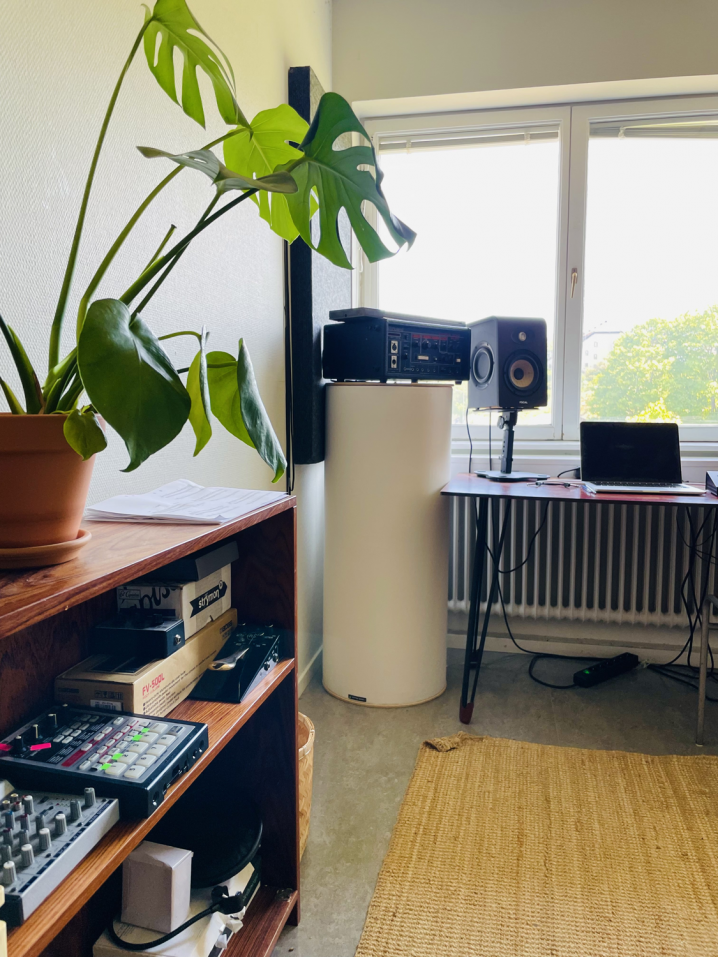
Tell us about your favourite piece of hardware.
Right now, it’s a Revox B77 that I’m borrowing from my studio neighbour and friend. I like spending time with one hardware at a time when I am not in a time-limited and intense production process.
And what about the software that you use for production?
I use some of the UAD plugins quite a bit, like the Hitsville EQ collection or Pull Tech EQP. I’ve also used Waves Factory’s Spectre and Cassette. But I have phases with everything. You get tired of things and want to try out new things, and then you go back to the old ones again for a while, and so it continues.
Is there a particular piece of gear you’re dying to get your hands on, and do you think you’ll have one day?
I do need to get some things that I worked with in my old studio that I’m missing in my new space: a tape machine with varispeed and a Lexicon 480L. It’s expensive gear, but I use both of them quite a lot.
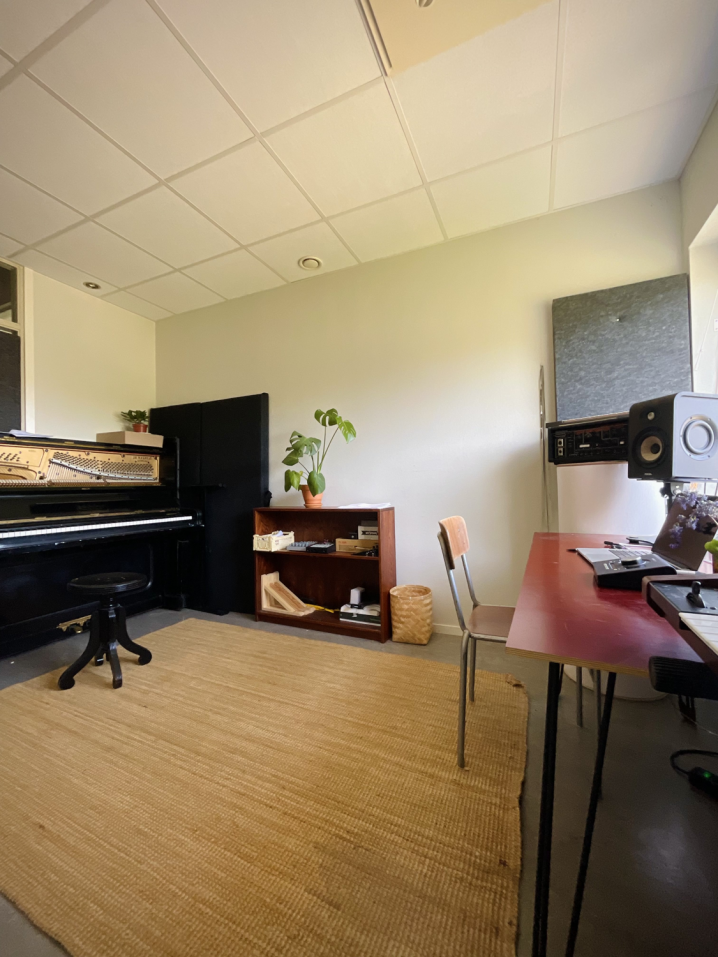
Can you please share some aspects of sound design in your work?
This a very open question to a very open subject. Sound design work varies so much for me. It can be very playful, sometimes a fast process, and sometimes very time-consuming, depending on the method. Sometimes it’s nice to choose a specific site with specific characteristics. And sometimes, things appear very randomly during a spontaneous situation. It depends. Using my ears and trying things out is my main practice.
Any particular new techniques that you tried out for your new album?
Nothing really new, no. But some things are very time-stretched. I worked with some feedback that generated nice self-oscillating sounds. I also played with saturation and distortion in some of the pieces, which I didn’t do in my previous releases. I put things through tape several times during the production process and we also did that a lot in the mixing process. There are still a lot of aspects of distortion that I am curious about and want to work with more.
What does your live setup look like, and what do you bring with you when you travel for an extensive tour?
I’ve just formed a new set for Living Circle, so now we are three people. So some of the things that I used to do – live processing and playing samples – are now things that a third musician will do, along with playing bass synth. I will play on a Juno and a piano for this set, and there will be a cellist that also is doing some live processing. Non gear-related things that I like to bring are good books and running shoes (if there is time for a run)!
What is the most important environmental aspect of your current workspace, and what would be a particular element that you would improve on?
The view! I see a lot of boats and a lake outside my window. And daylight! I am fed up with dark studios. Darkness is also all you get up here in Stockholm between October and March, so taking part in the sun while it’s up is important to me. I hope I can make the acoustics in my studio a bit better one day. Although I’m not that bothered by it, I guess that‘s something that I would want to improve.
What can you tell us about your overall process of composition? How are the ideas born, where do they mature, and when do they finally see the light?
Just like the question about sound design, it really varies and can look a lot of different ways. Some pieces are made through improv first, and some are pieces where phrases are written in parts, and after a while, a form gets developed where the parts are connected. Sometimes I have a track that I find interesting to use as a core when writing, where the characteristics of the sound itself are the interesting thing to focus on while writing. It could be a field recording or something else pre-recorded that is time-stretched or manipulated in different ways. I like nerding out on a certain sound quality or texture when producing. Sometimes I like to play with randomness when writing. I don’t like habits too much; it’s the variation and the not always knowing that makes the practice exciting.
I really gave my recent record Living Circle a huge chunk of time. I had breaks where I didn’t listen to the tracks at all. And periods where I didn’t know what I wanted to do with the material or how I wanted to push things. I’ve noticed that things usually mature a couple of weeks before mixing for me. Time limitations are well needed in order for decisions to be made, but I’m careful with doing things too fast when doing records.
You see a tendency in things generally sounding a bit flatter or indifferent when you just spit things out with not much time in between each release, where you can move on from previous work, take other things in and reflect on what you are interested in. Of course, you can have a fast process and an interesting outcome. And I guess this depends on how your practice looks. But, for me personally, some sort of dynamic between fast and slow is needed in order to make work meaningful for me.
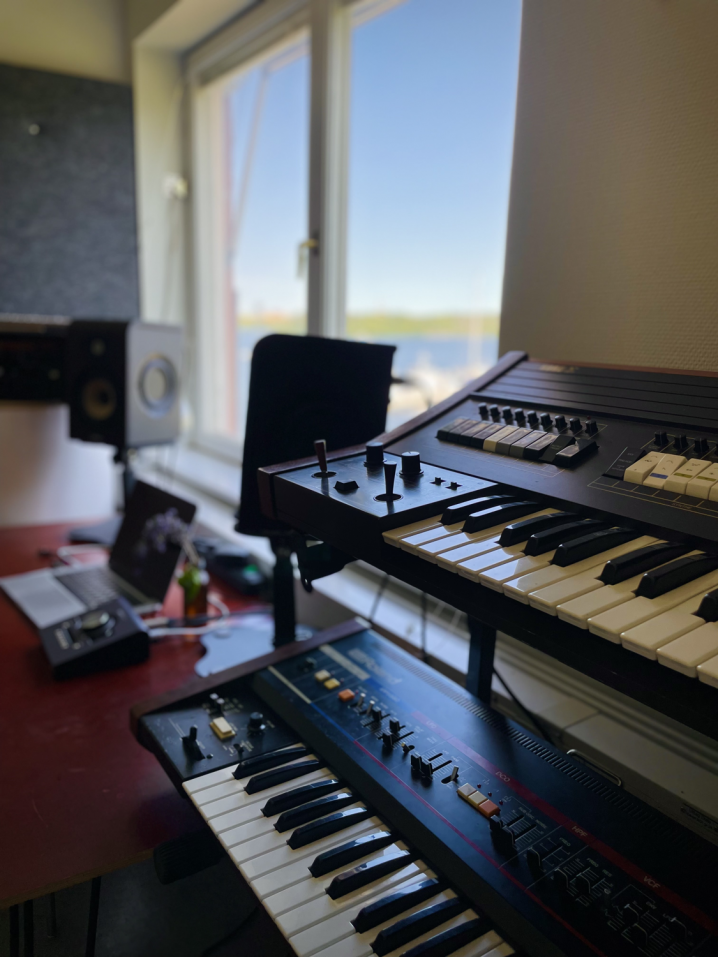
After the piece is complete, how do you audition the results? What are your reactions to hearing your music in a different context, setting, or a sound system?
I am usually done taking things in too much once the production and mix and mastering process is done. I listen to it a week after the process is finished, and after that, I move on. I do enjoy picking up the material in order to prepare things for live shows, though; that is a different exploration and practice, especially now when I am doing it in a trio-constellation where we can fill the space with more sound and texture. I really enjoy playing in a band again after years of solos and duos.
Do you ever procrastinate? If so, what do you usually find yourself doing during those times?
I often socialize or watch documentaries when I procrastinate. Sometimes I do ambitious cooking.
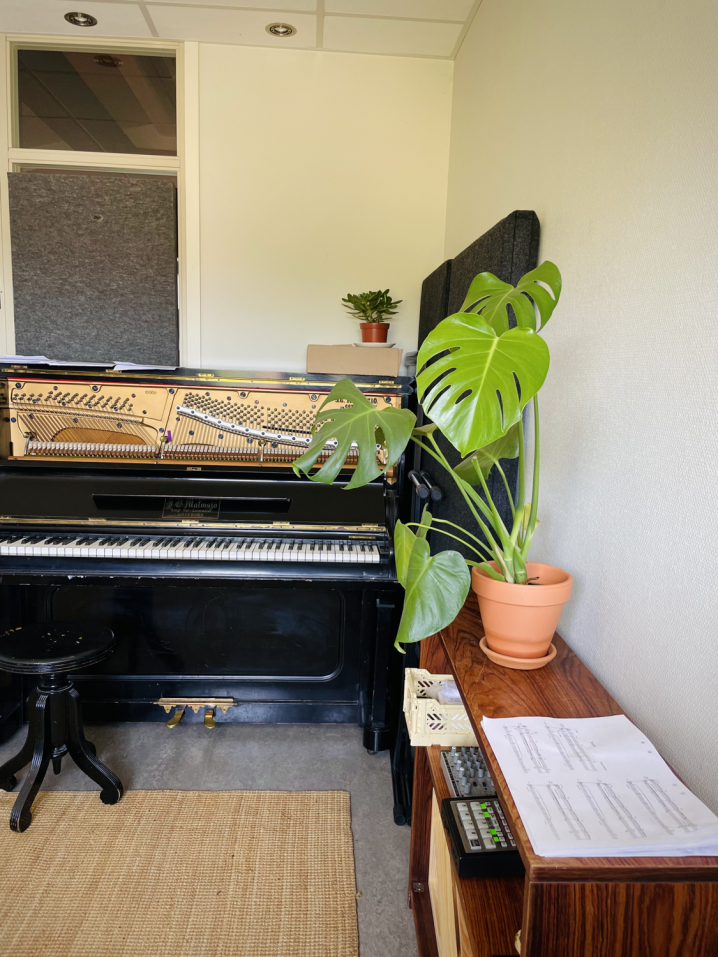
What gets you inspired?
When things are a bit still and you become a bit more observant and present. Or the total opposite! Full on city noise. I love the countryside/big city exchange. Seeing new places is also something I find inspiring.
And finally, what are your thoughts on the state of “electronic music” today?
There’s a lot of nice stuff coming out, and I like that the term has a broader definition and is more complex/diverse nowadays. However, some aspects of the field are still not so diverse, even if things are moving a little bit more towards something hopeful compared to how things were 10 years ago.
